This January, Colgate University’s first-years in the Benton Scholars program embarked on a trip to Washington, D.C., and Tangier Island, Virginia, to study climate change. The Benton Scholars program selects first-years through an application process to participate in a course that focuses on a salient societal topic or issue. Students are then awarded scholarships to complete a project related to each year’s designated topic. This year, Benton Scholars have the opportunity to increase their research skills and get experience in the field of college-level research, all while delving into important topics and designing practical solutions.
“The Benton Scholars Program changes its focus each year in response to faculty members’ proposals for timely emphasis in the courses they propose to teach,” Associate Professor of Physics and leader of the Benton Scholars Program Jonathan Levine said.
This year, the chosen course topic was climate change.
Tangier is an offshore island in the Chesapeake Bay that is currently only about four feet above sea level, according to the Virginia Department of Wildlife Resources. The residents of the town deal firsthand with the effects of sea level rise and are at possible risk of evacuation in the future.
“We visited Tangier so that we could learn from people who are dealing with urgent climate-related challenges right here, right now,” Professor of Earth and Environmental Geosciences, Peace and Conflict Studies and trip leader Karen Harpp said. “This is one of the front lines of climate change impact in the U.S. […] and Tangier residents could be some of the first climate refugees in this country in just a few decades.”
Harpp also elaborated on the details of the Benton Scholars course and project that relates to climate change.
“This is a project-based course on climate change. Students will use human-centered design [and] design thinking methods to identify problems they want to try to address that relate to climate change,” Harpp said. “This approach emulates the scientific method, requiring data collection and testing of ideas before finalizing a project design. Specifically, you must learn about the situation first to even identify the problem you are going to solve — a critical data-gathering step. Then, any solutions to the challenge that you design are more likely to be appropriate and potentially effective.”
The first part of the course is dedicated to becoming well-versed in the selected topic of climate change to be able to design creative, timely and useful solutions. As their initial information-gathering effort, the trip asked students to begin to answer the following questions: What do people know about climate change, how are people being affected by it, how do people feel about climate change and what are people doing to stop the effects of climate change?
Students spoke to different people and organizations in the D.C. area to gather various perspectives on the subject of climate change. These organizations included NASA, the United States Agency for International Development (USAID), the National Academy of Sciences, the Climate Leadership Council, the National Park Service and the Center for Climate and Energy Solutions, among others.
“We spoke with representatives of different companies and even Congress in Washington, D.C., about their views on climate change and what the companies are doing to mitigate and research it,” first-year and trip attendee Kirstyn McKee explained.
“We also met with climate skeptics, including staffers at the Congressional office of Colgate’s district and the Heritage Foundation, to hear all perspectives [and] to invite students to appreciate the complexities involved in addressing climate change,” Harpp said.
The trip included visits to the Smithsonian Science Education Center and the Smithsonian Environmental Research Center to learn about the educational services they provide about climate change, how they educate the public about the issue and the ecological research they are doing.
“On Tangier, we spent an evening bonfire hearing stories from the mayor and fire chief about their island, its culture and its rich history, the challenges they are facing from the shrinking of their island, their efforts to mitigate the potential loss of not just their way of life but their home and stories about all the media attention and political activity they have experienced as a result,” Harpp said.
After the trip, students will use the information and skills they have learned and perfected to design their own projects back on campus related to the mitigation of the effects of climate change or education on the topic.
“Students refined several critical skills both for this class, future classes and their careers: careful listening, crafting thoughtful, informed questions, carrying out research, taking detailed notes and identifying potential problems they’d like to explore in the coming weeks as they define their projects,” Harpp said.
The Benton Scholars’ projects may benefit society in general while also supporting Colgate’s community of intellectuals.
“I hope the [Benton Scholars] program will do two things in particular moving forward. First, I want to see continued emphasis on timely course topics and to spur innovation in teaching on important issues of this kind. But second, I’d like the community of Benton Scholars themselves to contribute to a culture of intellectualism on campus, even outside of their work for classes.” Levine said.


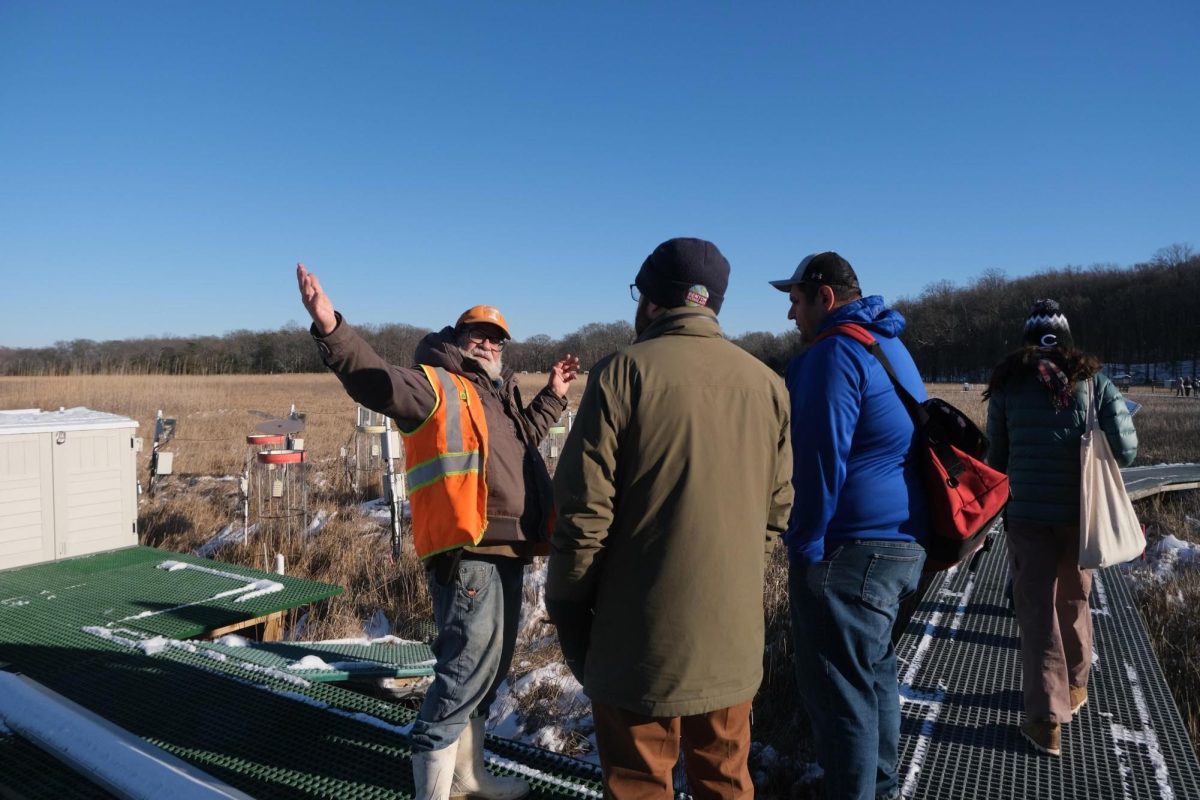
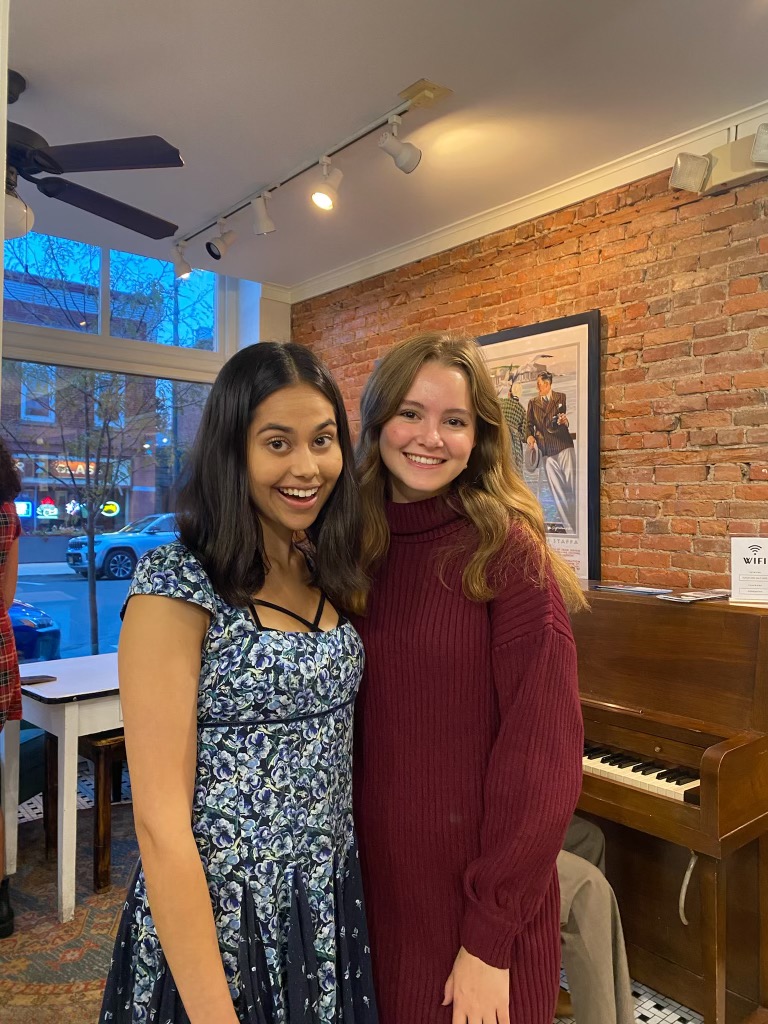



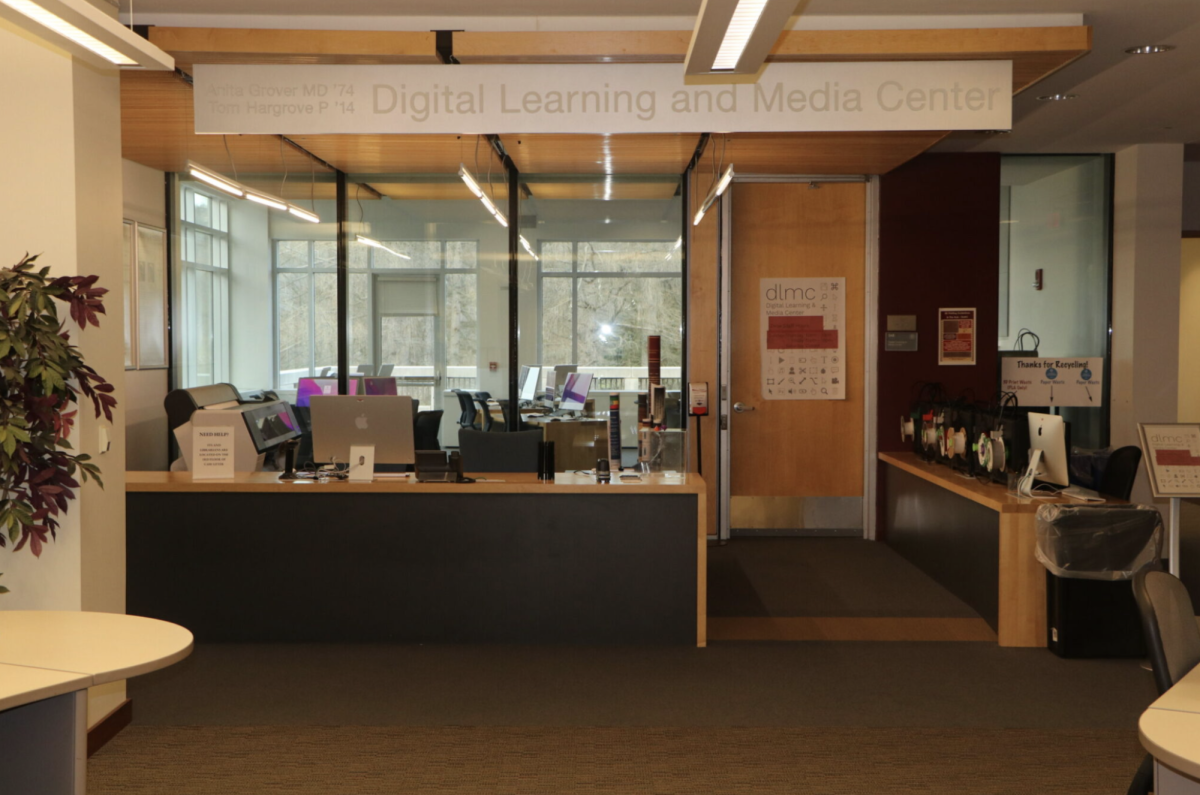
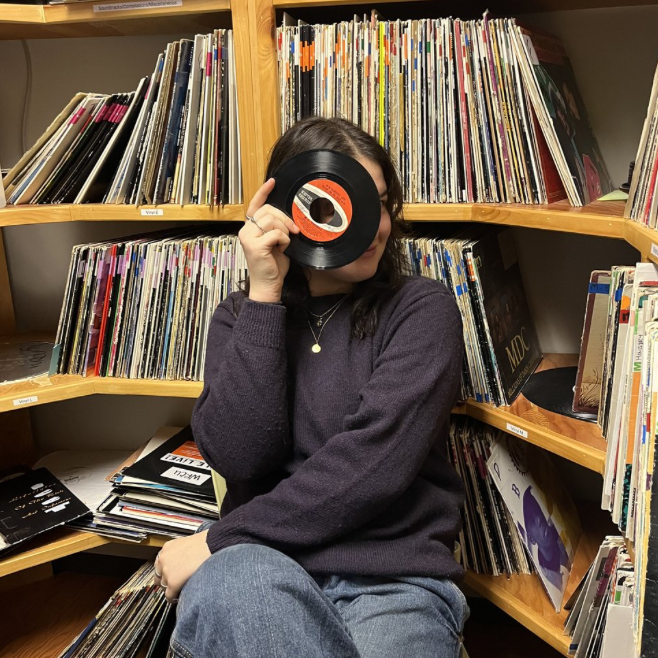

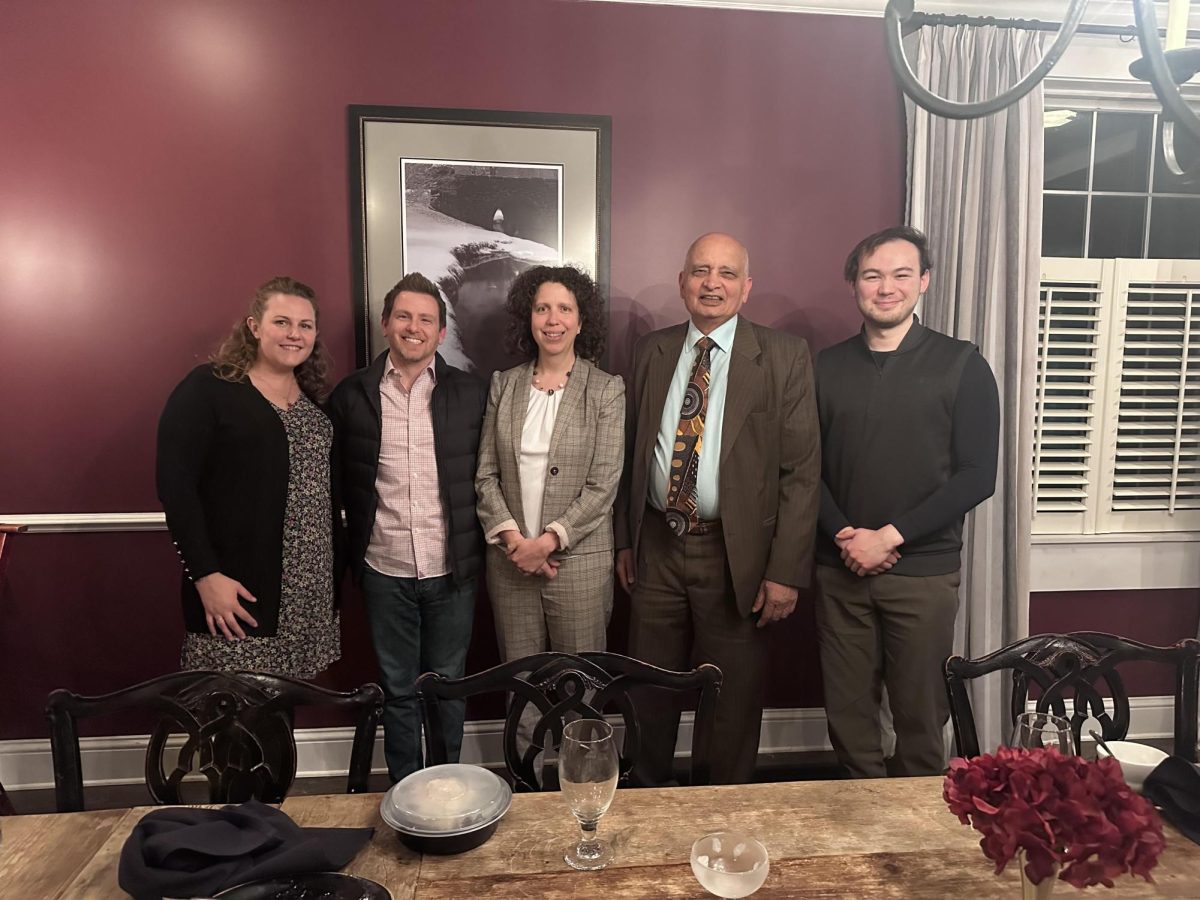

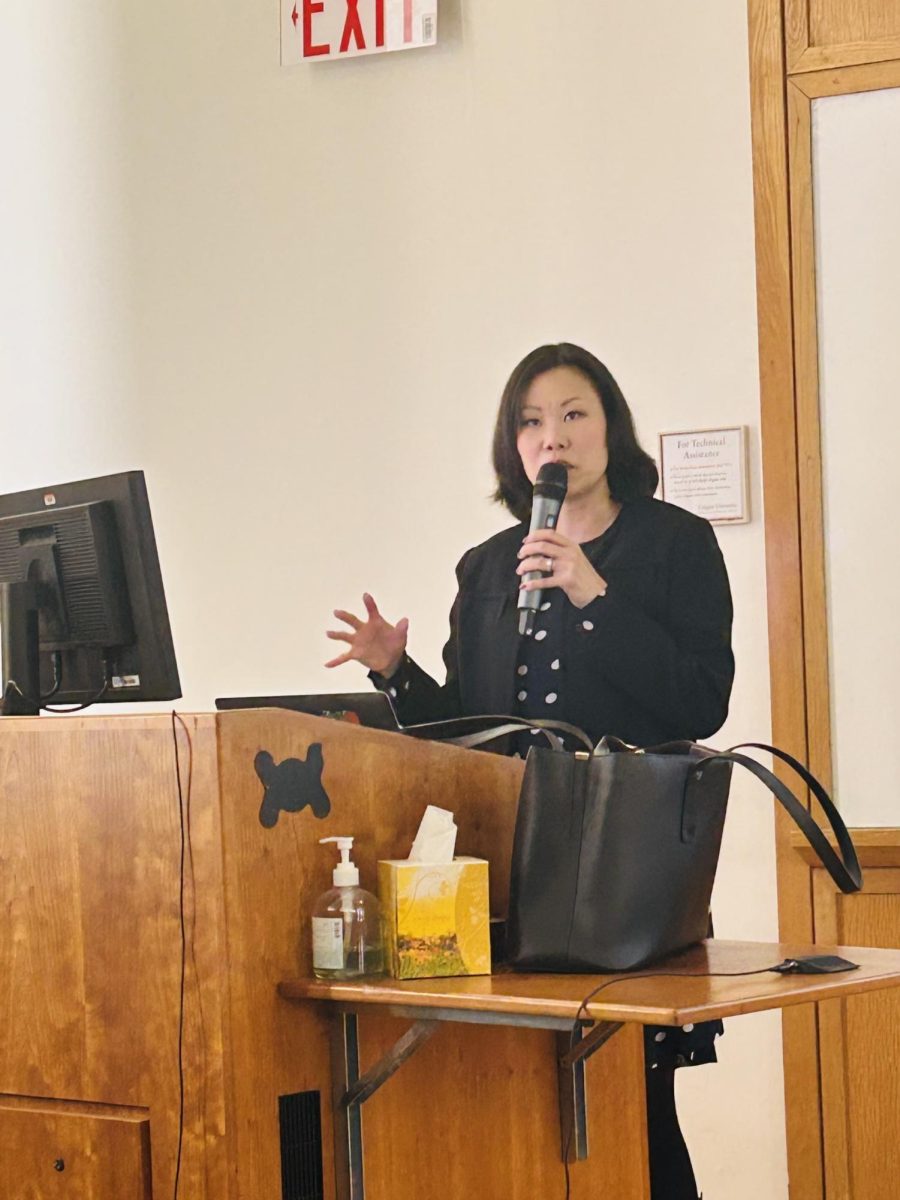

Spencer Baker • Feb 2, 2024 at 3:31 pm
What a wonderful program and well-written story. I love the Maroon News! Great newspaper!!